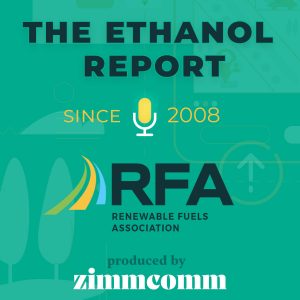
Gov. Ricketts and Nebraska Renewable Fuels Executive Director Troy Bredenkamp
Dubbed the great compromise, LB 1107 combined many of the business incentives of LB 720, otherwise known as the ImagiNE Act, with elements of property tax reform for all property owners including ethanol facilities. Critical to the ethanol industry were business tax incentives targeted toward renewable chemical operations which utilize ethanol and byproducts of the ethanol production process to create chemicals that are renewable-based.
Other elements of LB 1107 will allow for tax credits based on future investments and job creation and potentially substantial property tax relief for ethanol facilities, according to Troy Bredenkamp, Executive Director for Renewable Fuels Nebraska. “Ethanol producers have been through some challenging times lately,” said Bredenkamp. “As ethanol producers look to retool and reinvest in their plants, business incentives and property tax relief will influence future investments and upgrades in the Nebraska plant fleet.”
Both the Nebraska Ethanol Board and Renewable Fuels Nebraska now turn their attention to LR 373, which will be the first comprehensive study of state policy impacting Nebraska’s ethanol in many years. Several policy-related issues will be researched and assessed with potential legislation during next year’s session to address policy impediments to Nebraska’s ethanol industry. “As the state agency representing the ethanol industry, we look forward to assisting the Nebraska Legislation with this study process,” said Roger Berry, Administrator of the Nebraska Ethanol Board. “Ethanol and biofuel production is as important as ever as we take a serious look at air pollution and its harrowing effects on public health, especially those experiencing respiratory issues.”





 Four new co-chairs have been selected to lead the
Four new co-chairs have been selected to lead the  During a briefing on storm damage in Iowa Tuesday, President Donald Trump heard from Sen. Joni Ernst (R-IA) about issues facing the ethanol industry, particularly the threat of the Environmental Protection Agency granting retroactive small refinery exemptions for previous years.
During a briefing on storm damage in Iowa Tuesday, President Donald Trump heard from Sen. Joni Ernst (R-IA) about issues facing the ethanol industry, particularly the threat of the Environmental Protection Agency granting retroactive small refinery exemptions for previous years.
 Scientists at USDA’s
Scientists at USDA’s  The
The 